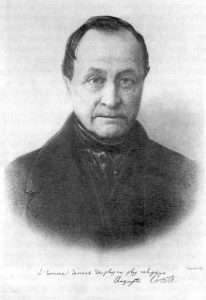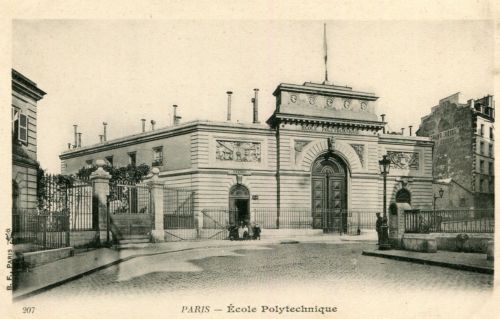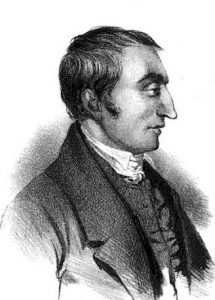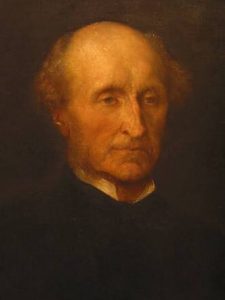Auguste Comte was a French philosopher in the Victorian Era. He is called the founder of sociology and positivism. He was keen on observing and studying the society – its changes and characteristics.

He was born in Montpellier, France to very sincere Roman Catholics. His father was a tax official. However, Auguste was a practical thinking boy and at a very young age, he refused to accept Roman Catholicism or royalism.

He studied at Ecole Polytechnic – a school in Paris. He became a mathematics teacher and earned his living in Paris. He was also a freelance journalist. He had a great interest in studying, particularly, history and philosophy.
Auguste Comte Facts
His thoughts and perceptions about society shaped according to the writings and critics of French thinkers and political philosophers such as – Montesquieu, Joseph de Maistre, and ARJ Turgot.

His first articles were published by Saint Simon, a social reformer. He was also one of the founders of Socialism. In 1826, he began his lectures on ‘system of positive philosophy’.
He then took a break for a few years since he went through a nervous breakdown. After four years, in 1830, he redelivered the same lecture at the Royal Atheneum.
Auguste Comte Works
Thereafter, he dedicated the next 12 years of his life in publishing the “Cours de Philosophie positive” or the “Course of Positive Philosophy”. They came out in six volumes over time.

From the English community, he was supported by John Stuart Mills and the philologist and lexicographer – Maximilien Littre.
Auguste Comte Positivisme
In the year 1825, Auguste Comte married Caroline Massin. However, due to an unhappy marriage, they separated in 1842. He is said to have romantic relations with a woman named Clotilde de Vaux.
Sadly, only a year after that, she died of tuberculosis. These incidents had some role to play in the reasoning of what according to Comte, was woman’s roles in the society.

A fourth of volume of the series of “Course of Positive Philosophy” was “Systeme de politique positive” or “The System of Positivity” came out in 1854.
Auguste Comte Contribution to Sociology
This was the part of the series where the term sociology was introduced and its meaning was explained. He wrote about its various characteristics and ways of its betterment.
All of Comte’s work revolved around morality and humanism. He believed in a positive spirit and therefore, intensified on putting the word out there so people can know how to lead a life based on moral values and ethics.
He influenced many French as well as English thinkers and intellectuals. He created a positivist society and worked on its development. Due to cancer, Auguste Comte died on 5th September 1857 in Paris, France.
Auguste Comte’s Theory
Comte believed that there were three stages to the concept of the development of sociology while considering the global society as a whole.
1. The Theological Stage
This is the phrase that refers to the time of the beginning of human beings and their early settlements. This was the time when they had no perspective whatsoever.
However, slowly, they started to think and become curious about their own existence and their purpose around the earth. They answered these questions by determining that there exists a force above that was their creator and directed the actions and events of their lives.
They believed that everything happening around them was a direct expression of this force or ‘god’ and that everything that existed was a sign of god. Ancient people believed that the stars we see in the sky were gods observing and controlling the earth.
Ancient Greeks perceived the sun in the sky to be a wheel of the chariot of their god ‘Apollo’. For any natural disaster or any disease or epidemic in an area, they would believe it to be an act of god out of fury over the people who do wrong and lead immoral lives.
This shows that in the theological stage of the society people used supernatural and divine explanations to justify their existence and the things around them. Also, their purpose on the earth.
2. The Metaphysical stage
This is the second stage of society. This stage is also known as the abstract stage. Comte believed that this stage started during the 1300s which are around the middle ages in Europe.
Here, people believed that anything happening around them was a result of human tendencies. They still believed in divine powers and the concept of the creator – god.
However, this at this time they concluded the gods were not as directly involved as they believed them to be in the theological stage but any mishaps happening were a result of the foul defect in humanity.
The metaphysical stage was an extension of the theological stage. Rationalism came to rise at this stage. People rationalized situations instead of imagining them.
Pure reasoning and thinking conclude that God is an abstract being. Hence, God is not the reason for every phenomenon occurring in human life.
The man began to observe and learn that there is a natural order to the environment with respect to almost everything. Hence, they formulated and abided by ‘principles’. These principles helped them lead a righteous life.
These two did not satisfy the curiosity of the mind over a lot of things. They, therefore, moved on to the further stage – the positive or the scientific stage.
3. The Positive / Scientific Stage
This is the final and the highest stage of Auguste Comte’s theory. In this stage, people began to reason everything around them. As the name suggests, they started finding scientific answers to the phenomena around them.
They no longer believed that planets were gods and deities in the sky looking over us but balls made of rock and gas rotating around the sun.
They started doing medical research and find medicines for various diseases which they now knew were not a result of bad human behavior but mere changes in the environment or climate conditions.
They also knew that a flood or famine was caused due to excess or no rain at all and not because of the wrath of God. The positive stage simply represents a scientific outlook over situations.
This new outlook made more sense and satisfied the curious human mind. Observation, analysis, and inference made people believe more rather than a superstitious belief.
Auguste Comte Theory of Social Change
Superstitious beliefs could not answer the questions – how and why. Positive thinking not only satisfied the human mind but also was very useful in making industrial decisions.
Through his theory, Comte exposed social statics that influenced the society through differentiation, centralization of power and gave rise to the development of common morality so people could lead a stress-free life.
More Info On- Mary Ann Evans, Marie Taglioni